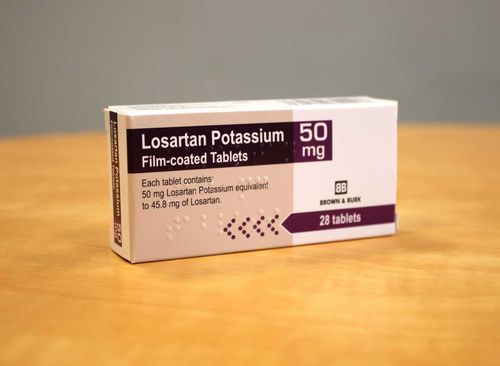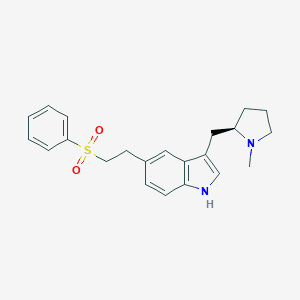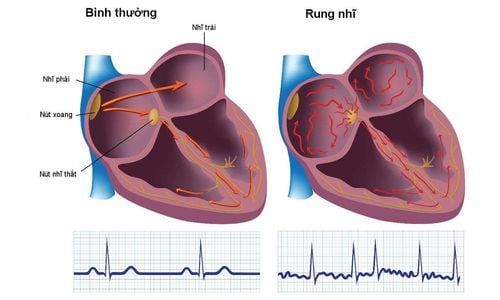This is an automatically translated article.
Today, atherosclerotic disease is known to be one of the leading causes of death due to unscientific diet and lifestyle. So what is atherosclerosis and what are the consequences?
1. What is Atherosclerosis? Atherosclerosis is a condition in which plaques form and accumulate within the walls of arteries, blocking the flow of oxygenated blood to the heart and other arteries.
Atherosclerotic plaques are formed from calcium, cholesterol, fat and other substances. They become stiffer over time and more plaque builds up narrowing the artery.
Atherosclerosis if not detected and treated can lead to serious consequences such as stroke, heart attack and even death.
2. What causes atherosclerosis? According to studies, high cholesterol in the blood is the main cause of atherosclerosis and this high rate is mainly due to diet, but also depends on genetic factors. A high-fat diet like people in Western countries is thought to be the leading cause of plaque formation in the arteries.
In addition, a number of other diseases are also associated with high cholesterol levels in the blood, such as diabetes, hereditary high cholesterol. In addition, factors that are thought to contribute to atherosclerosis include overweight, obesity, inactivity, smoking habits, and high blood pressure.
These factors cause bad cholesterol to accumulate in the blood vessels, thickening the artery walls, and narrowing and impeding the circulation of blood vessels. Middle-aged people, men who regularly drink alcohol, women going through menopause, people who are often stressed, are at high risk of atherosclerosis.

Bệnh xơ vữa động mạch là tình trạng bên trong thành động mạch hình thành và tích tụ những mảng xơ vữa
3. What are the consequences of atherosclerosis? Most people with the disease do not know they have atherosclerosis until the disease causes severe complications, severe narrowing of the arteries, blocking the arteries and leading to myocardial infarction, stroke, and emergency treatment. That's because atherosclerotic disease does not have any outward symptoms.
However, depending on the damaged artery, there are sometimes telltale signs. Generally, the arteries most at risk of plaque formation are the carotid, coronary, and peripheral arteries. Here are the consequences of atherosclerosis in these 3 arterial systems:
Coronary arteries: In the body, the coronary arteries carry out the task of carrying blood to the heart. When plaque builds up and damages the inside of a coronary artery, that is coronary artery disease, which narrows and blocks the artery, causing chest pain. When atherosclerotic plaques suddenly detach from the vessel wall, accompanied by blood clots, coronary artery disease can cause a heart attack. Carotid artery: The carotid artery carries blood to the brain. When plaque forms and narrows or blocks the carotid artery, that is carotid artery disease, it will cause a stroke and possibly permanent brain damage. If it is only a temporary blockage of the carotid artery, the patient will experience a transient ischemic attack, and this is a sign to watch out for because they warn of the risk of stroke. Peripheral arteries: Peripheral arteries carry blood to the rest of the body and organs such as the limbs, pelvis. Atherosclerosis occurs in the peripheral arteries, reducing blood circulation to the extremities and causing intermittent pain, even amputation if the limb does not receive enough blood to nourish. In fact, atherosclerosis does not damage individual arterial systems. For example, people with atherosclerosis in the lower extremities also have atherosclerosis in both the coronary and carotid arteries. Therefore, if left untreated, atherosclerosis can lead to the following complications:
Myocardial infarction (coronary artery) Stroke (carotid artery) Studies have found that these People with atherosclerosis of the lower extremities have died from complications in the heart and brain, whether the disease manifests itself or not.
4. Diagnosis and treatment of atherosclerosis As mentioned above, atherosclerotic disease has no symptoms in the early stages, only when the arteries are narrowed and completely blocked can the disease manifest. clearly present. However, that is also when the disease causes serious complications. Therefore, in order to detect and treat the disease at an early stage, the patient is required to have a blood test to check the cholesterol levels in the blood, and at the same time diagnose diabetes and high blood pressure. are not.
In the case of advanced atherosclerotic disease, the test allows to detect damage to the arteries and other organs that receive blood from the arteries. Current diagnostic techniques for atherosclerosis include:
Doppler ultrasound: Assessing the speed of blood circulation in blood vessels. Electrocardiogram: Check to confirm a heart attack. Coronary angiogram: Shows which arteries are narrowed and how narrow. Currently, the treatment of atherosclerosis is still mainly prevention by changing lifestyle, diet and activities, and at the same time reducing the progression of the disease. If you have diseases that increase the risk of complications of atherosclerosis such as high blood pressure, blood fat, diabetes, you need to be actively treated for these diseases.
Treatment can be medication to prevent atherosclerosis progression, or surgery for cases of arterial damage affecting other organs and organs. Surgery includes: bypass surgery, fibrinolysis, angioplasty, plaque curettage, endarterectomy.

Việc điều trị có thể là dùng thuốc ngăn ngừa xơ vữa động mạch tiến triển
5. How to prevent atherosclerosis? Atherosclerosis can be prevented and controlled by:
Limiting the consumption of foods high in cholesterol and saturated fat. Eat fish twice a week. Maintain the habit of exercise and sports from 30-60 minutes/day, 5-6 days/week. Quit smoking (if you have one) or lose weight (if overweight). Avoid stress and anxiety. If you have diabetes, high blood pressure, and high blood fat, you need to be treated thoroughly. Atherosclerosis can cause serious consequences such as heart attack, stroke and death if it is not prevented, detected and treated at an early stage. Therefore, try to build a healthy, scientific lifestyle to prevent atherosclerosis.
Vinmec Cardiology Department has always received much praise and satisfaction from domestic and international customers, being pioneers in successfully applying the world's most advanced techniques in the treatment of cardiovascular diseases. .
A team of highly qualified and experienced specialists: qualified doctors from Master's to Professor's and Doctor's degrees, reputable in medical treatment, surgery, interventional cardiac catheterization. Intensive training at home & abroad. In particular, Prof. TS.BS Vo Thanh Nhan - Cardiology Director of Vinmec Central Park was recognized as the first and only expert in Vietnam to be awarded the "Proctor" certificate on TAVI. State-of-the-art equipment, comparable to major hospitals in the world: The most modern operating room in the world; The most modern silent magnetic resonance imaging machine in Southeast Asia; The CT machine has a super-fast scanning speed of only 0.275s/round without the use of drugs to lower the heart rate; The 16-sequence PET/CT and SPECT/CT systems help detect damage to the cardiovascular organs early even when there are no symptoms of the disease. Applying the most advanced advanced cardiovascular techniques in the world in treatment: Painless open heart surgery; Percutaneous aortic intervention without general anesthesia; Treatment of mitral regurgitation through the catheter has a success rate of 95%; Ventricular-assisted artificial heart transplantation for patients with end-stage heart failure prolongs quality of life beyond 7 years. Cooperating with leading cardiovascular centers in Vietnam and the world such as: National Heart Institute, Cardiology Department of Hanoi Medical University, University of Paris Descartes - Georges Pompidou Hospital (France), University of Pennsylvania (France), University of Pennsylvania (France), University of Pennsylvania (France). United States)... with the aim of updating the most modern cardiovascular treatments in the world. To register for examination and treatment with the leading doctors of the Cardiology Department at Vinmec International General Hospital, please click the "Contact Us" button on the website, or register for an online examination.
Please dial HOTLINE for more information or register for an appointment HERE. Download MyVinmec app to make appointments faster and to manage your bookings easily.













